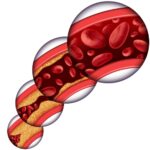Supercharge your Health: The Top Antioxidant Foods to Add to Your Diet
Antioxidant foods are foods that can protect cells from damage caused by harmful molecules called free radicals.
This blog will explain the types of antioxidants, what foods are rich with antioxidants, and what to avoid.

The benefits of antioxidants in our diet
Free radicals produced in our bodies as a result of normal metabolic processes cause damage to cells, proteins, and DNA, leading to various health problems including cancer, cardiovascular disease, and aging. On the other hand, antioxidants work by neutralizing these free radicals and preventing damage. Some of key benefits are:
Delayed aging
They protect against oxidative stress, which is a major factor in aging. By neutralizing free radicals, they can help slow down the aging process.
Better skin health
Also, they can help protect against damage caused by sung exposure, pollution, and other environmental factors.
Reduced risk of neurological problems
As well as they have been shown to protect against oxidative stress and inflammation, which can lead to neurological problems such as Alzheimer’s disease and Parkinson’s disease.
Improved immune function
Some antioxidants such as vitamin C, are essential for a healthy immune system and help protect against infections and illness.
Lower risk of disease
Moreover, they could reduce the risk of various diseases, including cancer, heart disease, and stroke by preventing cellular damage and reducing inflammation.
The types of antioxidants
There are many diverse types, and they can be categorized as Vitamins, Minerals, Enzymes, Carotenoids, Flavonoids and Polyphenols.
So by consuming a diet that is rich in a variety of antioxidants, you can help to protect your cells from oxidative stress and damage and support overall health
Most nutrient-dense and rich in antioxidant foods
Berries are known to be some of the most nutrient-dense fruits, and they are also rich in antioxidants.
Vitamin C

Berries such as strawberries, blackberries, and raspberries are all good sources of vitamin C, which is important for protecting cells from damage and maintaining healthy immune system
Flavonoids and Polyphenols

Berries are rich in flavonoids and Polyphenols, which are important for supporting overall health and protecting cells from damage.
Carotenoids

Some berries, such as cranberries and goji berries, are also good sources of carotenoids, which are important for eye health and protecting cells from damage
Fruits rich with antioxidants
Here are some fruits that are high in antioxidants, which are important to add to your diet for a healthy lifestyle
Berries

Berries such as blueberries, blackberries, and raspberries are high in antioxidants, including anthocyanins, which give the fruits their bright colour.
Cherries

Cherries are high in anthocyanins and also contain quercetin, another type of antioxidant.
Pomegranate

Pomegranate is high in antioxidants, including polyphenols and anthocyanins, and has been shown to have inflammatory and anti-cancer properties
Kiwi

Kiwi is high in vitamin C, which is a potent antioxidant, and also contains other types such as carotenoids.
Guava

Guava is high in vitamin C and also contains antioxidants such as lycopene.
Grapes

Grapes are high in antioxidants, including resveratrol, which is found in the skin of the grapes and has been shown to have anti-inflammatory and anti-cancer properties
Papaya

Papaya is high in antioxidants, including carotenoids and vitamin C, and has been shown to have anti-inflammatory properties.
These are just a few examples, so by incorporating a variety of these fruits into your diet, you can help protect your body from harmful free radicals.
Types of vegetables that include antioxidants
There are many vegetables that are high in antioxidants, here are some examples:
- Leafy greens such as Spinach, kale, and collard greens
- Cruciferous vegetables such as broccoli, cabbage, cauliflower, and brussels sprouts
- Squash, especially winter squash like butternut and acorn
- Bell peppers, especially red and yellow
- Tomatoes
Foods that can increase oxidative stress
These are things to keep in mind about certain foods that can have counter effect to your healthy lifestyle plan
- Alcohol: Drinking excessive amounts of alcohol can increase oxidative stress in the body, so it’s best to limit your alcohol intake
- Processed foods: they are often high in unhealthy fats and refined sugars, which can increase oxidative stress in the body.
- Caffeine: It can increase oxidative stress as well, so it’s a good idea to limit your caffeine intake.
- Smoking: This is one of the biggest sources of oxidative stress in the body, so quitting smoking is an important step in maximizing the benefits of antioxidants.
NutriBlooms Disease Management
At NutriBlooms, we offer a wide range of diet services that are tailored to care about your health. Whether you are looking for an advice to follow a healthier lifestyle, or looking to manage certain diseases through diet, then you are at the right place, NutriBlooms accredited dietitians will guide you through your journey.

NutriBlooms accredited dietitians are available around Melbourne to help you with your lifestyle journey
Are you having difficulty managing your weight?
We provide an all-inclusive solution that will improve your health and prevent dangerous diseases. Our programs and packages are individualized to meet the requirements of each client, and we have the best dietitians in the area to help you succeed!
What we offer during the diet consultation?
The consultation would include a detailed lifestyle assessment including a body composition analysis using a precise InBody machine. Based on the assessment, we set realistic targets and put a thorough plan to achieve it, this plan would include education and meal plan as found necessary.

Antioxidants
They can promote your health and prolong your life, they can help your skin and more. Consult your dietitian now for more.
Post navigation
PreviousPrevious post:The Lean Machine: A Blog about Weight Loss and Health
NextNext post:Diabetes Type 2 Management with Low-GI Diet


